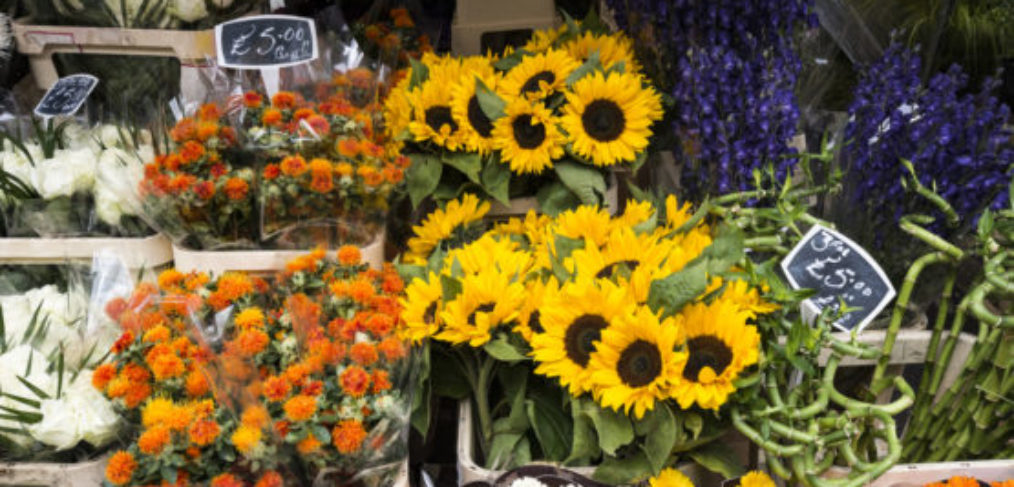Fair Trade Flowers

Who doesn’t love a bouquet of flowers on the kitchen counter or on their bedside table?
Not only pleasing to the eye, flowers can help improve one’s mood, boost memory function, help with relaxation and even increase energy! (1, 2)
If you’re growing them in your garden, or better yet, if flowers that naturally live on their own in your area present themselves for the picking from where you live, you’re already a step ahead since you truly know where your flowers are coming from.
If not, however, it may not be as straightforward as stopping into your locally grocery store if you’re looking for fresh flowers that not only look and smell beautifully, but are also good for the community, both that around you and those far away.
In the US, roughly 80% of the flowers lining US market shelves come from Colombia. Most workers made the minimum wage, which is now about $250 per month. Many of them reported sexual harassment by male bosses; working long hours without breaks; and repetitive stress injuries with no employer-provided treatment or time off. As recently as 1994, a Colombian sociologist found children as young as 9 working in greenhouses on Saturdays, and children 11 and up working 46-hour weeks in almost all areas of the farms (3).
Workers are also exposed to pesticides linked to higher rates of miscarriages and premature birth.
Finally, from a sustainability to the planet standpoint, producing a single rose bloom requires as much as three gallons of water, highly taxing one of our planet’s most valuable natural resources: fresh water.
While statistics like this are harsh to consider, they’re facts worth knowing; once we know we can begin to make change.
Similar to learning what to look for when it comes to purchasing sustainable, ethical beef, seafood or produce, for that matter, once we have the education, we can each do our part.
By following the steps below, you can ensure you’re not supporting the practices listed above and instead, are making a positive impact on communities near and far.
- Shop Locally. Did you know that produce and flowers purchased from your local grocers may have been sitting in a cold storage container for upwards of two weeks (4)? On the other hand, if you’re purchasing right from the grower at your local farmer’s market, you’ve got time on your hands as often, the flowers were cut that very morning.
- Look for Fair Trade. If you’re not able to get to the farmer’s market, look for products with the Fair-trade mark; this shows that they have been independently audited and checked for compliance with Fair-trade International’s economic, social and environmental standards (5).
- Consider starting a garden. Granted, this requires more effort than going online to make a purchase, but being in charge of a living thing, be it plant or animal, boosts morale, mood and motivation. And while a window box, if you’re in an urban jungle, may not provide space to allow an abundant amount of flowers that you can give large bouquets to friends every week, a lovely, albeit small bouquet you’ve grown yourself make a gift lovelier than words.
- If all else fails and you’re finding yourself being lead down dead-ends, keep in mind that other gifts make more than suitable replacements for flowers, depending on the occasion. A DIY body scrub made of coconut oil, essential oil and raw sugar, homemade truffles (such as my signature raw chocolate truffles) or a DIY anything, for that matter will all be a heartfelt gift that offers a kind gesture and supports your local community simply by your action of awareness.
The more you know…
(1) https://www.homesteadathamilton.com/blog/5-amazing-health-benefits-flowers/
(2) https://www.webmd.com/balance/news/20090724/floral-scent-soothes-stress
(3) https://www.smithsonianmag.com/travel/the-secrets-behind-your-flowers-53128/
(4)https://www.today.com/food/how-buy-best-salad-greens-farmers-market-grocery-store-t225259
(5)https://www.consciouslifeandstyle.com/fair-trade-flowers/




